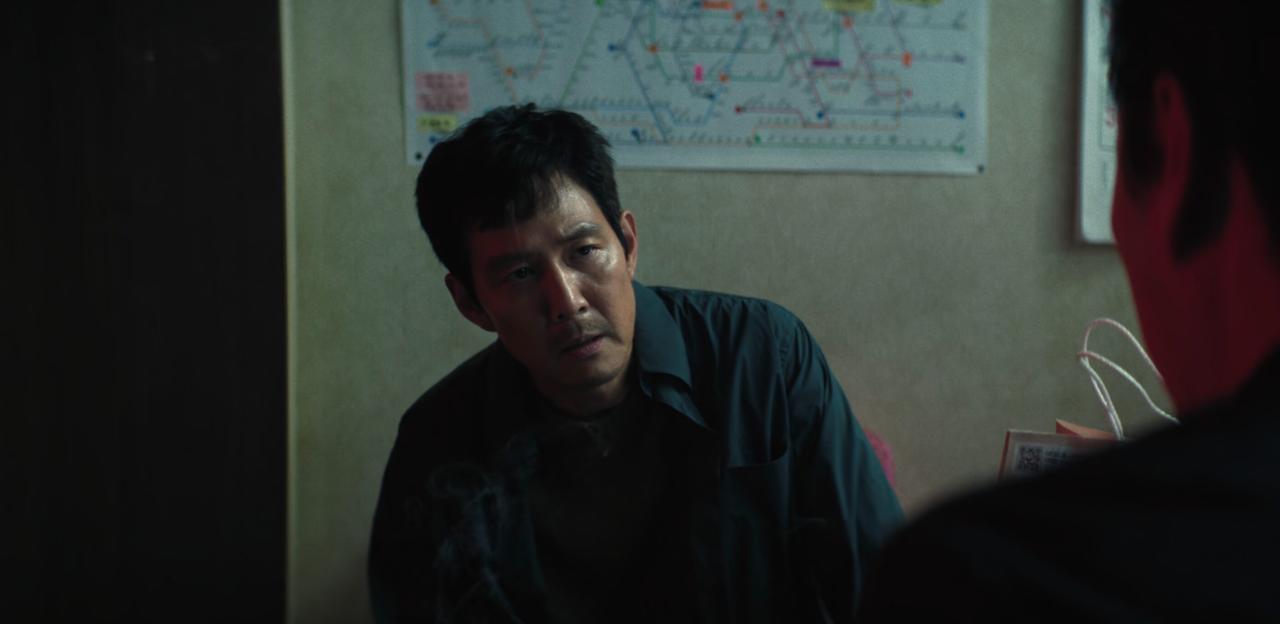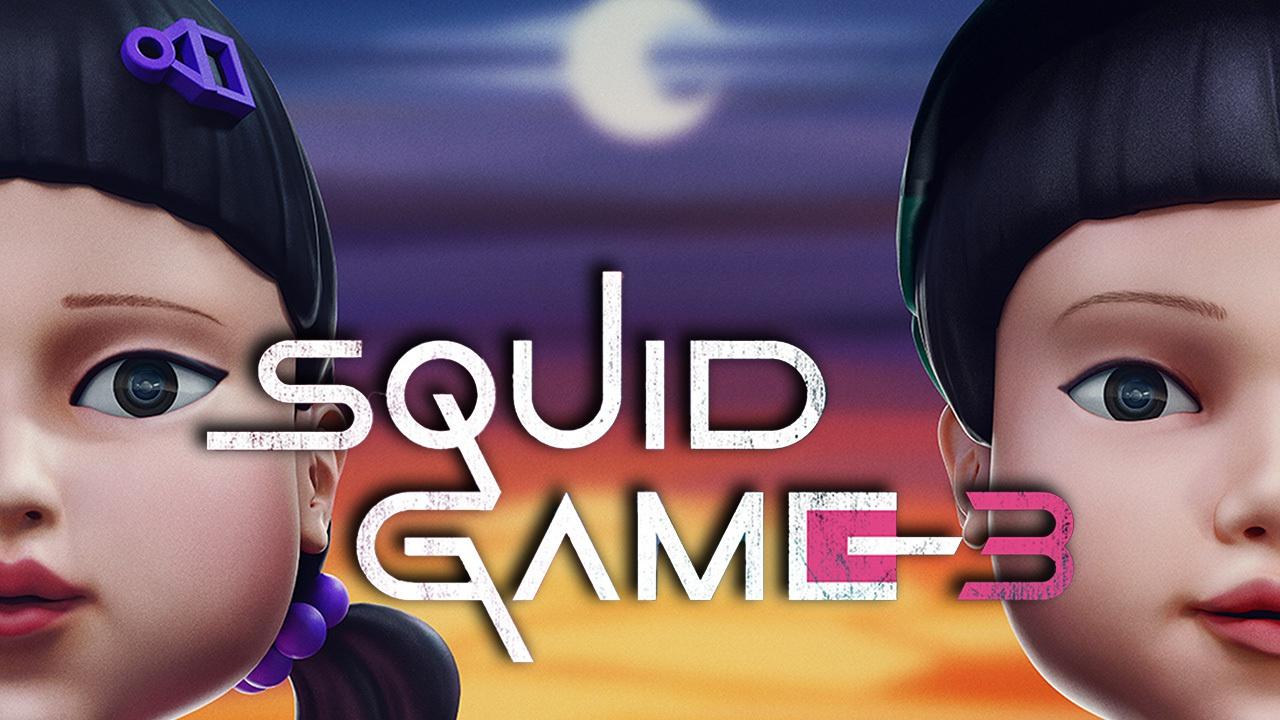Squid Game Histoire Vraie? The hit Netflix series, Squid Game, wasn’t just a fictional thrill ride; it tapped into very real anxieties about debt, inequality, and societal pressure in South Korea and beyond. This exploration delves into the show’s inspiration, comparing its brutal games and desperate characters to real-world situations and exploring the show’s global impact and cultural resonance.
We’ll uncover the fascinating parallels between the show’s fictional world and the harsh realities faced by many.
We’ll examine the socio-economic conditions that fueled the show’s dark themes, exploring the impact of debt crises on individuals and families. We’ll compare the games in Squid Game to traditional Korean games, analyzing their simplicity and deceptive nature. Then, we’ll dive into the characters, dissecting their motivations and how they represent different social classes and struggles. Finally, we’ll look at the show’s visual style and symbolism, revealing how they contribute to the overall atmosphere and social commentary.
The Inspiration Behind “Squid Game”: Real-World Parallels in South Korea
The immense popularity of “Squid Game” stems not only from its gripping narrative but also from its unsettling reflection of socio-economic realities in South Korea. The show’s themes of extreme debt, desperation, and the brutal competition for survival resonate deeply with audiences worldwide, highlighting the stark parallels between the fictional games and the pressures faced by many in real life.
Socio-Economic Conditions in South Korea
South Korea’s rapid economic growth has been accompanied by significant income inequality. A substantial portion of the population struggles with high levels of household debt, often stemming from educational expenses, housing costs, and the pressure to maintain a certain lifestyle. This creates a highly competitive environment where individuals feel immense pressure to succeed, even at great personal cost. The “winner-takes-all” mentality prevalent in South Korean society is subtly reflected in the show’s deadly games.
Real-Life Debt Crises and Their Impact
Numerous instances of individuals and families facing crippling debt in South Korea have been documented. The pressure to repay loans can lead to severe financial strain, mental health issues, and even suicide. The show’s portrayal of characters driven to desperate measures by insurmountable debt mirrors these real-life struggles. For example, stories of individuals taking out high-interest loans to cover expenses, only to find themselves trapped in a cycle of debt, are common.
The show’s portrayal of Gi-hun’s gambling addiction and subsequent debt is a stark example of this phenomenon.
Traditional Korean Games and Their Modern Counterparts
While the games in “Squid Game” are exaggerated and deadly, some bear resemblance to traditional Korean children’s games. The simplicity and deceptive nature of the games in the show, such as “Red Light, Green Light” (무궁화 꽃이 피었습니다
-Mugunghwa kkochi pieotseumnida) and “Tug-of-War,” reflect the inherent risk and reward dynamics present in competitive situations, even those not involving life-or-death stakes.
However, the deadly consequences of failure in “Squid Game” represent a stark departure from the playful nature of their real-world counterparts.
Psychological Impact of Extreme Poverty and Desperation

The series vividly depicts the psychological toll of extreme poverty and desperation. Characters grapple with feelings of hopelessness, helplessness, and a profound sense of being trapped. The show portrays the erosion of morality and the lengths to which people will go to survive, even if it means compromising their values. The intense pressure to win, combined with the ever-present threat of death, pushes the characters to their psychological limits, highlighting the devastating effects of extreme economic hardship.
The Games: Fact vs. Fiction
The games in “Squid Game” are deceptively simple, their childlike appearance masking the brutal reality of their deadly consequences. This juxtaposition of innocence and violence is a key element of the show’s unsettling impact. The rules are straightforward, but the pressure and stakes are impossibly high, forcing the contestants to make difficult choices.
So you’re wondering about “Squid Game histoire vraie”? While the show’s fictional, the desperation it portrays sadly reflects real-world struggles. Think about the sheer scale of visual spectacle needed to depict such intense scenes – it makes you appreciate the technical mastery involved in something like the incredible shanghai drone show , a completely different kind of spectacle but equally impressive in its own right.
The contrast highlights how even fictional stories can illuminate harsh realities.
Rules and Mechanics of the Games
Each game in “Squid Game” is meticulously designed, with clear rules and escalating levels of difficulty. The simplicity of the games, such as “Red Light, Green Light,” “Honeycomb,” and “Marbles,” belies the complex psychological and strategic considerations they demand under pressure. The deceptive nature of the games lies in their familiar appearance, which masks the lethal consequences of failure.
The players are lured into a false sense of security before the true brutality of the games is revealed.
So you’re into the “Squid Game histoire vraie” debate? It’s fascinating how a fictional show reflects real-world anxieties. Think about the sheer scale of the games – imagine coordinating something that complex using drones, like those showcased at the china drone show 2026. That kind of coordinated technology could certainly create a visually stunning, and potentially terrifying, spectacle, just like in the show.
The “Squid Game histoire vraie” question really makes you consider the potential for both amazing and frightening uses of advanced technology.
Real-Life Competitions and Games with Similar Elements
While the deadly consequences are unique to “Squid Game,” the core concept of high-stakes competition with significant rewards and severe penalties is present in various real-life scenarios. Reality television shows featuring elimination challenges, extreme sports competitions, and even high-pressure business environments share similar elements of risk and reward, although the stakes are typically far less severe. The willingness to participate, driven by the promise of a life-changing prize, echoes the desperation of the “Squid Game” contestants.
Ethical Implications and Contestant Participation
The ethical implications of the games and the contestants’ willingness to participate are central to the show’s themes. The desperation caused by extreme poverty and debt drives individuals to risk their lives for a chance at financial security. The show raises questions about the moral compromises people might make under extreme duress and the responsibility of society to address systemic inequalities that create such desperate situations.
The willing participation of the contestants raises questions about the nature of consent when individuals are driven by desperation and the lack of viable alternatives.
Comparative Table of Games

| In-Show Game | Real-World Counterpart | Level of Risk |
|---|---|---|
| Red Light, Green Light | Children’s game (Mugunghwa kkochi pieotseumnida) | High (death penalty) |
| Honeycomb | Traditional Korean snack game | Medium (elimination) |
| Tug-of-War | Traditional game/sport | High (death penalty) |
| Marbles | Children’s game | High (elimination) |
The Characters: Representations of Societal Issues
The diverse cast of “Squid Game” represents a cross-section of South Korean society, each character grappling with unique struggles driven by economic hardship and societal pressures. Their motivations and decisions reflect the complexities of inequality, debt, and the desperate search for a better life.
Character Profiles
Each character’s backstory is carefully crafted to illustrate the various ways economic hardship impacts individuals. Their decisions and actions throughout the game reflect their personal struggles and motivations. Their fates serve as commentary on the systemic issues that drive them to such extremes.
| Character | Background | Motivation | Fate |
|---|---|---|---|
| Seong Gi-hun |
|
|
Survives |
| Cho Sang-woo |
|
|
Dies |
| Kang Sae-byeok |
|
|
Dies |
| Oh Il-nam |
|
|
Dies (possibly) |
The Visuals and Symbolism: A Deeper Look
The visual style of “Squid Game” is a crucial element of its overall impact. The stark color palettes, the unsettling set designs, and the costume choices all contribute to the show’s unique atmosphere, emphasizing the themes of desperation, violence, and social commentary.
Visual Style and Atmosphere, Squid game histoire vraie
The show’s visual style is characterized by a striking contrast between bright, almost childish colors used in the game sets and the grim, desaturated tones of the contestants’ everyday lives. This contrast highlights the jarring juxtaposition between the seemingly innocent games and their deadly consequences. The use of vibrant colors in the game settings creates a sense of artificiality and unreality, further emphasizing the surreal nature of the competition.
Visual Symbolism
Color plays a significant role in the show’s symbolism. The vibrant green of the game sets contrasts sharply with the muted tones of the contestants’ living spaces, highlighting the stark difference between the artificial world of the games and the harsh reality of their lives. The recurring use of specific colors, such as the pink of the guards’ uniforms and the green of the game area, creates a visual language that underscores the themes of control, manipulation, and the dehumanization of the contestants.
Visual Elements and Themes

The visual elements of “Squid Game” are carefully crafted to reflect the show’s central themes. The stark settings, the minimalist costumes, and the deliberate use of color all contribute to the overall atmosphere of desperation, violence, and social commentary. The visual language of the show reinforces the sense of entrapment and the dehumanizing nature of the games, reflecting the larger societal issues the show explores.
Analysis of a Specific Scene
The final game, a brutal version of “Squid Game,” is visually striking. The vast, open space of the game arena contrasts with the close-quarters combat of the final moments. The blood-soaked ground and the desperate expressions of the players underscore the ultimate stakes of the competition. The use of slow motion and close-ups intensifies the violence and the emotional impact of the scene, highlighting the brutal reality of the situation and the consequences of the contestants’ choices.
The Global Impact and Cultural Reception of “Squid Game”
The global popularity of “Squid Game” is undeniable, having transcended cultural boundaries and sparked widespread discussions on various social and political issues. Its influence extends beyond entertainment, permeating fashion, social media trends, and even political discourse.
Global Popularity and Cultural Impact
The show’s immense success can be attributed to its universal themes of inequality, desperation, and the struggle for survival. The simple yet compelling premise, combined with its high production value and gripping narrative, resonated with audiences worldwide. The show’s popularity has led to numerous memes, parodies, and discussions on social media, solidifying its place in popular culture.
Influence on Media, Fashion, and Social Trends
“Squid Game” has inspired countless tributes and parodies across various media platforms. The show’s distinctive visual elements, such as the iconic green tracksuits and the Dalgona candy game, have become instantly recognizable symbols, influencing fashion trends and inspiring countless social media challenges. The show’s popularity has even led to the creation of real-world versions of the games, albeit with significantly less dangerous consequences.
So, you’re curious about “Squid Game histoire vraie”? While the show’s fictional, the desperation it portrays sadly reflects real-world struggles. Think about the scale of that desperation – it’s almost as visually stunning as the incredible light show seen in the shanghai new year drone show , a spectacle of coordinated movement and light. Returning to “Squid Game,” the show’s impact lies in its unsettling exploration of societal pressures driving people to extreme measures.
International Reception and Variations in Interpretation
While “Squid Game” has been largely praised globally, its reception has varied across different cultures. In some countries, the show’s critique of social inequality has sparked heated debates about economic policies and social justice. In others, the focus has been on the show’s thrilling narrative and its entertainment value. These variations reflect the diverse socio-political contexts in which the show is viewed.
Social and Political Discussions Sparked by the Show
The show has sparked widespread discussions about income inequality, the pressures of a competitive society, and the need for social safety nets. The stark portrayal of extreme poverty and the lengths to which people will go to survive has fueled conversations about the importance of social justice and the need to address systemic inequalities. The show’s success has elevated these issues to the forefront of global conversations, sparking debate and prompting reflection on the societal structures that create such stark disparities.
Closure: Squid Game Histoire Vraie

Squid Game Histoire Vraie ultimately reveals a powerful reflection of societal anxieties globally. While the games are fictional, the desperation and inequality portrayed resonate deeply with viewers worldwide. The show’s success lies in its ability to highlight critical issues, prompting conversations about debt, economic disparity, and the human cost of societal pressures. Its lasting impact on popular culture underscores its relevance and importance as a work of social commentary, prompting us to consider the very real struggles mirrored in its fictional narrative.
Answers to Common Questions
Was Squid Game inspired by a specific real-life event?
While not based on a single event, the show draws inspiration from various real-world issues in South Korea, particularly concerning economic inequality and the pressures of extreme debt.
Are the games in Squid Game based on real Korean games?
Some games share similarities with traditional Korean children’s games, but the high-stakes, life-or-death context is entirely fictional.
How accurate is Squid Game’s portrayal of South Korean society?
The show exaggerates certain aspects for dramatic effect, but it highlights real social and economic issues present in South Korea and other parts of the world.
What is the significance of the show’s visual style?
The vibrant color palettes contrast sharply with the brutal violence, creating a jarring and unsettling effect that emphasizes the show’s themes.
